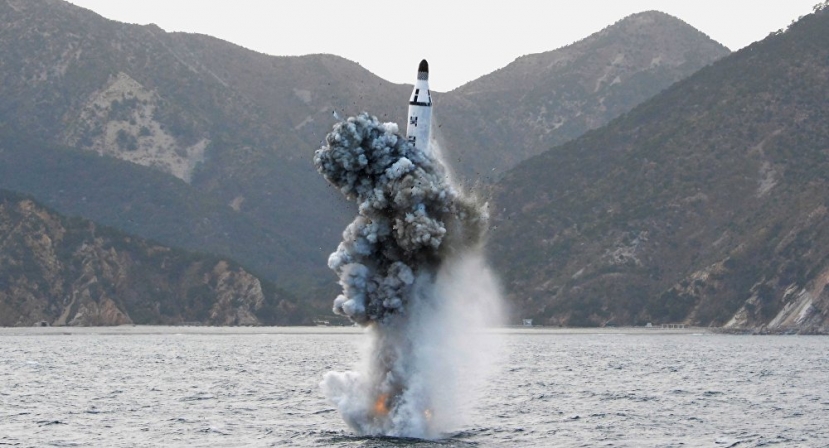Over the last 48 hours, a 65 meter-long North Korean submarine has exhibited "unusual deployment activity," according to what two unnamed officials told CNN on Thursday. The vessel has sailed farther than it has before into international waters, travelling 62 miles to the Sea of Japan.
According to one of the officials, the submarine’s atypical behavior has caused South Korean and US forces to raise their alert levels slightly, as Washington keeps an eye on the vessel through reconnaissance.
This activity comes weeks after Pyongyang completed what Washington has deemed its first successful intercontinental ballistic missile (ICBM) test launch on the Fourth of July, with North Korea leader Kim Jong-un calling the launch a "gift package" for the US on the anniversary of its Independence Day.
North Korean state media reported that future launches were likely, quoting Kim telling scientists that they should "frequently send big and small 'gift packages' to the Yankees."
Kim also claimed that the Hwasong-14 missile tested most recently is capable of carrying a large nuclear warhead, and some experts say that a missile from the North could have the capability to reach the US west coast in only a couple of years.
Despite UN sanctions and international calls for denuclearization, the Democratic People’s Republic of Korea (DPRK) maintains that its nuclear program is needed to fend of attempts at regime change coming from the US.
Following the July 4 launch Pyongyang blasted US Defense Secretary James Mattis for encouraging more military action against the North, calling Mattis a "peerless bellicose element well known to be a 'war-maniac' and 'rabid dog' in the overseas aggression wars," in its Rodong Sinmun newspaper.
Pyongyang also hosted a "Struggle Against US Imperialism" month that featured the release of two postage stamps, one showing a hand crushing a US missile, and another showing missiles pointed toward the US Capitol building.
The international outcry following the DPRK’s launch was almost instant, as it made the possibility of the North mounting an attack on its enemies, both regional and international, appear more of a reality.
South Korea, a US ally that houses Washington’s Terminal High Altitude Area Defense System (THAAD), has called for military talks. At a news briefing on Monday, South Korean Unification Minister Cho Myoung-gyon said, "Talks and cooperation between the two Koreas to ease tension and bring about peace on the Korean Peninsula will be instrumental for pushing forth a mutual, virtuous cycle for inter-Korea relations and North Korea's nuclear problem," Reuters reported.
The DPRK is believed to have about 70 submarines, though many of them may not be capable of firing missiles. Experts say that the North successfully launched a missile from a Gorae-class submarine in August.

